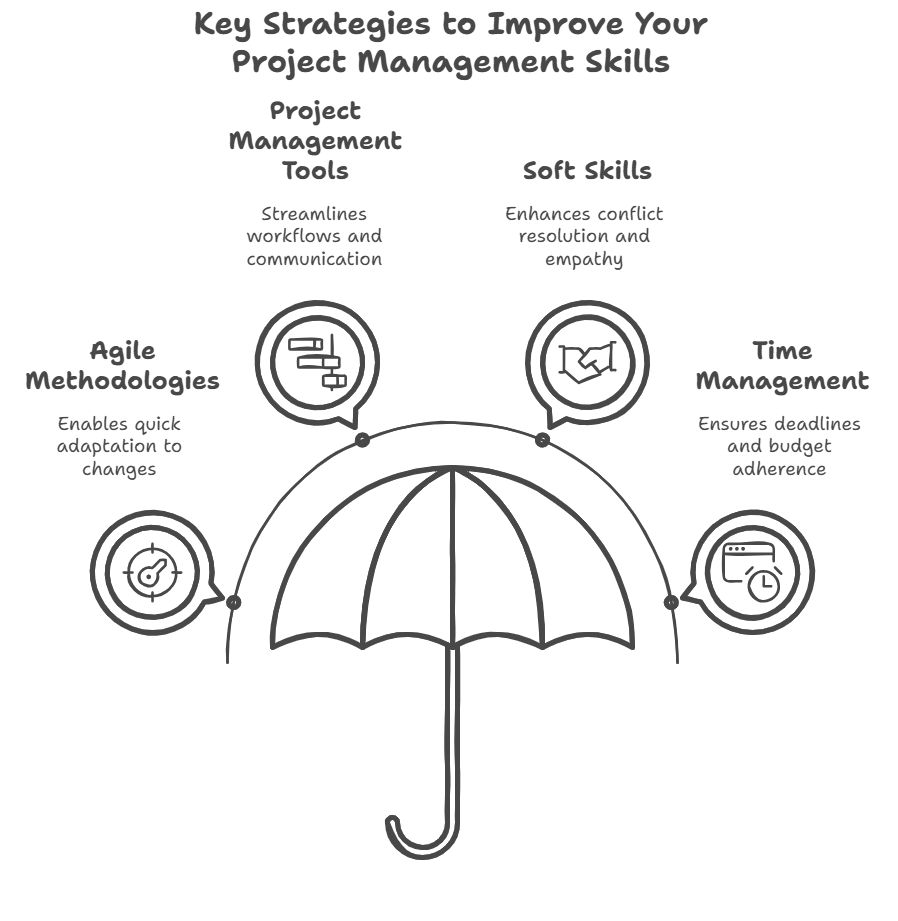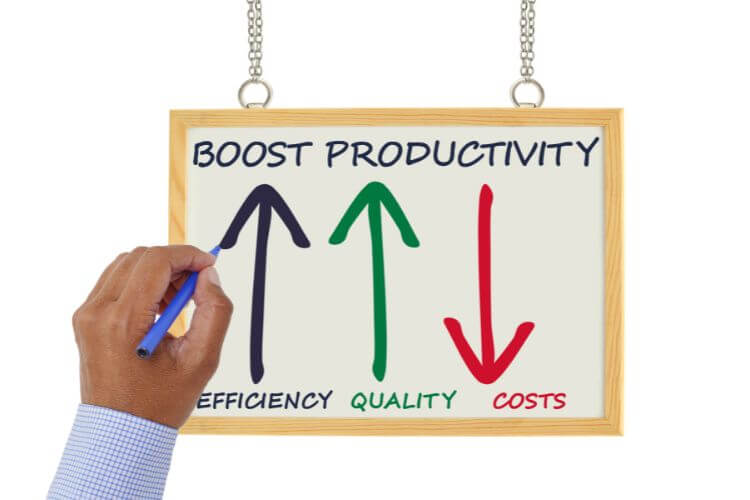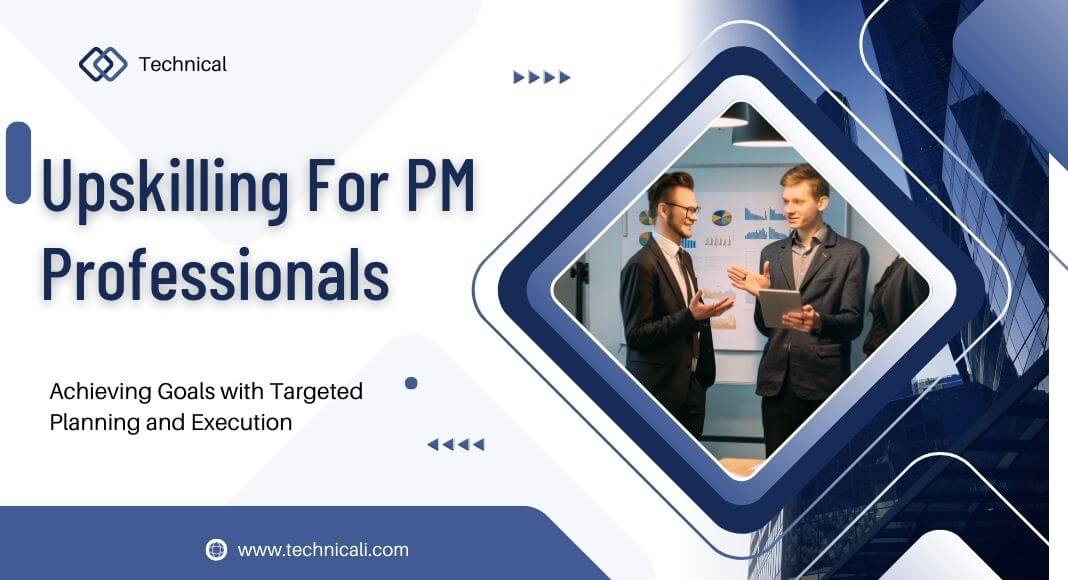Continuous progress in project management has become the norm, especially in today’s modern workplaces. With an ever-growing emphasis on project management methodologies and new forms of training, professionals are beginning to see why continuous learning is not just an option, it’s a necessity. A PMI study found that organizations that don’t adequately include project management in their strategies have a project failure rate of over 60%. Such data underscores how upskilling and reskilling have become pivotal to achieving a successful project and allowing project managers to remain competitive in a landscape shaped by advances in technology.
Contents
- 1 Understanding the Current State of Project Management and Why It’s a Growing Trend
- 2 Why Upskilling and Reskilling Are Essential for Every Project Manager
- 3 Key Strategies to Improve Your Project Management Skills and Ensure a Successful Project
- 4 Boost Productivity and Adapt to Continuous Changes Through Agile Project Approaches
- 5 Trends in Project Management and Soft Skills Needed to Become a Successful Project Manager
- 6 Conclusion
Understanding the Current State of Project Management and Why It’s a Growing Trend
The current state of project delivery reveals an evolving marketplace where project management remains integral to business success. In fact, research indicates that organizations with project management maturity include a 29% decrease in failed projects.
- Project managers must respond to this trend by staying agile and informed.
- The marketplace shift includes new management methodologies such as Scrum or Kanban, coupled with a surge of digital innovations that highlight the demand for time management and adaptability.
Key Challenges for Modern Project Managers
- Handling people with varying expertise within the organization.
- Aligning each stakeholder throughout the project to maintain quality and consistency.
- Implementing effective risk management and resource management to drive a successful project.
- Overcoming organizational friction, especially resistance to change when introducing new management tools or project management software.
Communication Is the Key: The Nature of Work in Today’s Project Environment
The nature of work in complex project settings calls for exceptional communication. Indeed, communication is the key to keeping team members fully engaged.
- Real-time collaboration ensures delegating tasks is seamless, boosting productivity and paving the way for business success.
- Encouraging open dialogue within project management teams not only inspires creativity but also nurtures trust within the project environment.
Why Upskilling and Reskilling Are Essential for Every Project Manager

In today’s fast-paced climate, reskilling and upskilling are mandatory for any manager aiming for a successful project. High-performing project managers focus on bridging the skills gap by blending technical skills and soft skills.
Bridging the Skills Gap with Continuous Learning and Development
- Emphasize learning and development programs: Recent surveys show that companies with a highly engaged workforce have 21% higher profitability.
- Harness online courses and other courses that can help: From agile principles to specialized project management certification, these pathways expand your knowledge and skills.
- It’s always a good idea to refine time management skills, problem-solving skills, and up-to-date management methodologies that can help you improve your overall performance.
Furthermore, to improve your project management skills, consider recognized credentials through the Project Management Institute. Credentialed professionals often report stronger credibility, better compensation, and more robust career prospects.
Identify the Skills You Need to Develop to Remain Competitive
Identify the skills that are crucial in today’s environment so you can remain competitive:
- Evaluate your current skills and pinpoint gaps that may be needed for every project.
- Focus on relevant skills like leadership, problem-solving, and effective teamwork with your team and stakeholders.
- If you need to improve in any area, create a plan to upskill or upskill further by leveraging new systems, collaborative tools, and expert guidance.
By periodically reviewing your project goals, you can determine exactly what you need to develop next, thereby ensuring each project supports the wider vision and helps you stay on top of the evolving project lifecycle.
Key Strategies to Improve Your Project Management Skills and Ensure a Successful Project

An effective strategy to enhance your project management skills often includes proactive planning and continuous refinement.
Embracing Agile Project Management Methodologies
- Adopting an agile project mindset enables teams to pivot quickly when requirements shift.
- Leveraging flexible project management methodologies like Scrum or Kanban increases productivity and speeds up decision-making processes.
- A good project blueprint with iterative progress checks helps ensure final deliverables meet quality expectations.
Real-world data shows that a study by McKinsey found that organizations utilizing Agile practices can improve their productivity by 20% to 30%, showcasing how adopting an agile project approach can help project managers handle dynamic requirements.
Leveraging Project Management Tools and Software
- Online project management platforms unify communications, especially if integrated with CRM or ERP systems.
- Specialized project management software featuring task management capabilities streamlines complex workflows, ensuring the project stays aligned with deadlines.
- One powerful benefit is the automatic generation of analytics dashboards, making risk management and resource allocation decisions more data-driven.
Developing Soft Skills and Problem-Solving Abilities
To help project managers thrive, refining soft skills is a must. Empathy, active listening, and adaptability open doors to better conflict resolution. Additionally, problem-solving techniques, including root cause analysis, yield more reliable project outcomes under pressure.
- Building a rapport with team members keeps the momentum strong.
- Fostering an environment of trust encourages shared responsibility and timely interventions.
Time Management Skills: Staying Within Budget and Meeting Project Goals
Strong time management skills translate to fewer missed milestones and improved project performance:
- Become a project leader by breaking down tasks, clarifying roles, and documenting timelines.
- Strategic delegating tasks ensures nobody is overloaded and fosters a climate of accountability.
- By setting clear benchmarks, you can meet critical project goals and deliver high-quality results within budget.
Boost Productivity and Adapt to Continuous Changes Through Agile Project Approaches

Because continuous improvement is central to project success, being agile helps you pivot quickly without losing sight of overarching objectives. This adaptability encourages upskilling and reskilling across the entire project management teams.
Enhance Your Project Management to Stay on Top of Every Project
To truly help you stay competitive, incorporate the following:
- Regularly update your project plan based on new insights, stakeholder feedback, and potential challenges.
- Adapt your style to any changes in scope or resource constraints.
- Use robust feedback loops to keep every project aligned with broader operational targets.
Leveraging Online Project Management and Management Tools
Time-saving management tools can significantly reduce miscommunication and bottlenecks:
- Exploring project management tools with real-time data synchronization helps you coordinate tasks across geographically dispersed teams.
- Tightly integrated solutions with payment gateways and enterprise resource solutions streamline the entire organization, simplifying approvals, billing, and scheduling.
- Keeping team members informed about updates fosters collaboration and clarity, reducing confusion about who is responsible for delegating tasks at any given moment.
Ensuring Project Outcomes: Why Project Managers Must Remain Competitive
- Project managers must keep an eye on new trends in project management, from updated frameworks to advanced analytics and automation.
- The ongoing expansion of PMI standards highlights the advantages of continuous professional growth.
- Cultivating a culture of learning ensures that your project management approach remains flexible, preparing you for a lasting career as a project manager.
Trends in Project Management and Soft Skills Needed to Become a Successful Project Manager

Emerging trends in project management continue to redefine workflows, emphasizing iterative development, faster response times, and robust communication channels.
The Role of a Good Project Manager in Resource Management and Risk Management
A good project manager balances resource management effectively while mitigating potential pitfalls through thorough risk management. Maintaining this equilibrium involves:
- Monitoring workloads closely to avoid fatigue and burnout.
- Proactively identify obstacles and implement solutions to keep the project moving forward.
Building a Career as a Project Manager: How to Upskill and Develop Critical Skills
If you’re keen to carve out a fulfilling career as a project manager, focusing on the skills required to excel is paramount:
- Critical skills encompass leadership, strategic thinking, and emotional intelligence.
- Continuously upskill by experimenting with new project management methodologies and advanced technical skills.
- Aspire to evolve from a good project manager to an excellent project manager by embracing fresh learning and development opportunities.
Conclusion

Continuous learning is no longer a luxury, it’s a fundamental strategy for project management professionals determined to stay ahead. By intentionally cultivating upskilling and reskilling habits, you remain agile enough to adapt to new methodologies, integrate emerging technologies, and address the ever-evolving demands of stakeholders. In essence, the modern project manager requires both technical skills and soft skills, like effective communication, empathetic leadership, and problem-solving abilities, to orchestrate a successful project from planning to delivery.
Moreover, stepping into a mindset of ongoing learning and development helps close the skills gap and fosters confidence in tackling projects with clarity. As recommended, leveraging project management certification programs from established organizations such as the Project Management Institute (PMI) can catapult your professional standing. Meanwhile, agile project frameworks, advanced project management software, and diligent task management systems offer the operational efficiency needed to keep your project on track within budget and aligned with every project goal. Through these endeavors, you also cultivate an atmosphere where communication is the key, delegating tasks becomes seamless, and team members flourish under your guidance.
Finally, building a habit of regular introspection and adaptation ensures that you “identify the skills you need to improve” and hone them incrementally. This mindset of perpetual refinement not only elevates you from a good project manager to an excellent project manager but also boosts your entire organization through sustainable practices. Share your insights, collaborate with peers, and champion this culture of continuous improvement, this collective commitment to upskilling and reskilling not only benefits individual careers but also drives transformative outcomes for every project entrusted to your team.
By blending strategy, data, and practical advice, this post aims to equip readers with insights that spark better decision-making and foster improved project execution. Share it with peers, cross-functional teams, and mentors to encourage collective learning and generate a ripple effect of project success across your networks.


